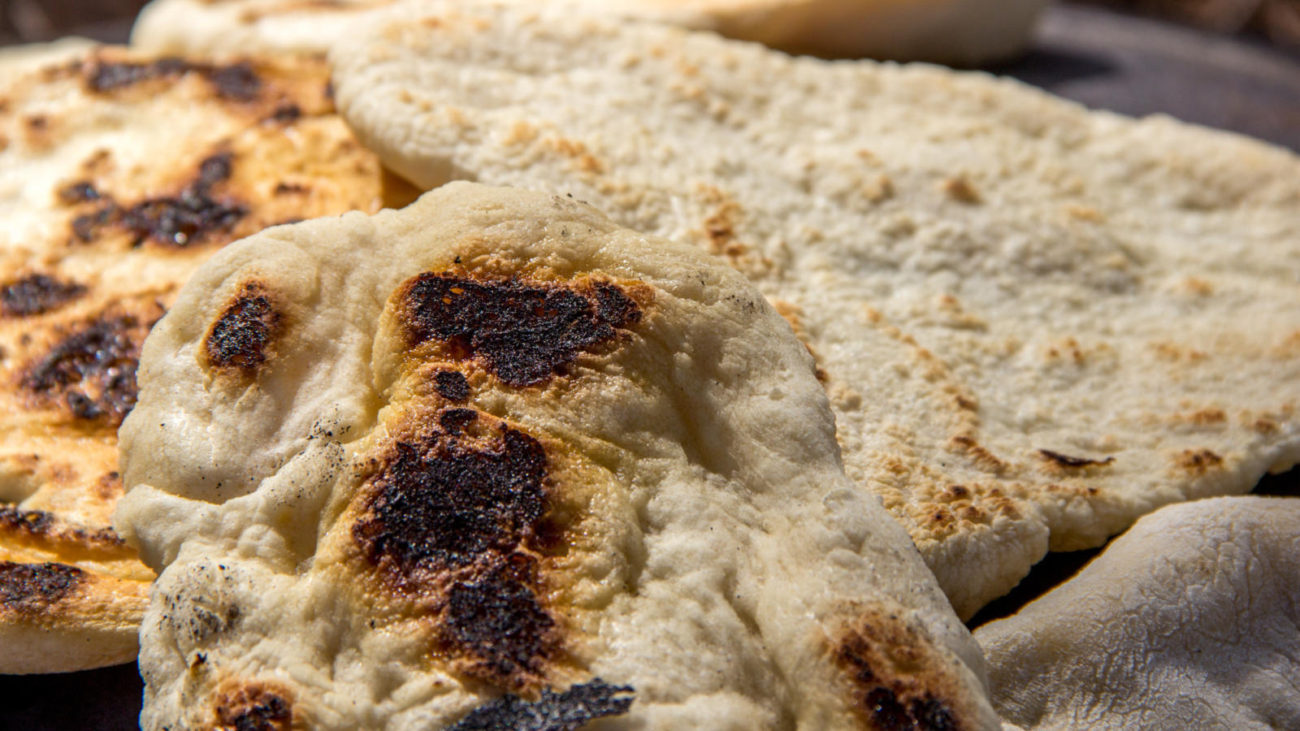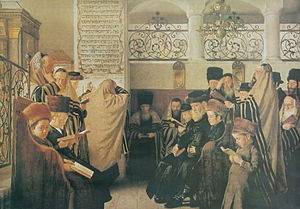Pesah Edition, Part 2
שולחן ערוך אורח חיים, תמו:ד
מצא פת בפסח בביתו ואינו יודע אם הוא חמץ או מצה, מותר אפילו באכילה דאזלינן בתר בתרא; ואם הוא מעופש הרבה, שאי אפשר לו להתעפש כל כך משנכנס הפסח, אז ודאי הוא חמץ. ואם עברו מימי הפסח שנוכל לתלות שנתעפש משנכנס הפסח עד עתה, אם אנו נוהגים לאפות בפסח פת חם בכל יום תולין להקל אפילו הוא מעופש הרבה, שאנו תולים לומר בכל יום אפה פת חם ונתנו עליו ולפיכך הרבה להתעפש
Orah Haim, 446:4: If one found bread at home during Pesah and he does not know whether it is Hametz or Matzah, he is allowed to eat it, because we assume it is from the last batch [which is matzah]. And if it is very moldy, in a way that it cannot have become so moldy since Pesah started, it is obviously hametz. And if enough time passed since the beginning of Pesah, that we can assume that it became moldy on Pesah, [and] if we usually bake fresh bread every day, we rule leniently, because we can say that he baked every day fresh bread and placed it on this loaf and that is why it is moldy.
We, of course, would have never followed this ruling of the Shulhan Arukh, but the oddities here help us understand the different reality in which these halakhot were written:
- You cannot tell apart hametz and matzah.
- You find bread somewhere in the house, not packed, covered, or marked, and you are going to eat it.
- The bread is moldy, and you might eat it if you can assess that it was baked on Pesah.
- The bread might be very moldy, and yet you are going to eat it.
- People baked fresh matzah, every day, including Yom Tov, at home.
The Mishnah Berurah (446:12) addresses the first point:
משנה ברורה, תמו:יב: דין זה הוא לפי מנהג זמנם שהיו אופין מצות עבה קצת ולא היו חלוקין בתארם מככרות של חמץ
This rule applies to their time. They used to bake thick matzah and it would look the same as hametz loaves.
This kind of Matzah is available today in some areas where there is a concentration of Sephardic Jews, and they look like thick tortillas. Still, the idea of people baking matzah daily is almost unheard of today, as we are so obsessed with the kashrut system and want everything to be supervised by the all-knowing, supreme intelligence if the Kashrut organizations. We would also not eat bread which was found rolling in the house or that has even a spot of mold, so it is hard for us to understand the austerity in which our ancestors lived.
A more relevant Halakha, though not one that most of us will find easy or comfortable to follow, is this:
אורח חיים, תמז:ד: אם נתערב החמץ קודם הפסח ונתבטל בששים, אינו חוזר ונעור בפסח לאסור במשהו, ויש חולקים.
הגה: ונוהגין כסברא הראשונה בכל תערובות שהוא לח בלח
Orah Haim 447:4: If hametz was mixed [into something else] before Pesah and was nullified by a ratio of sixty, it does nor reawaken on Pesah to make the mixture forbidden by even a small amount, and some disagree.
Rema: and the practice is to follow the first opinion in any mixture of liquids with liquids.
What the Shulhan Arukh is saying that if there is a mixture of Hametz and other elements, and the Hametz is less than one sixtieth of the mixture, the hametz is nullified within the mixture. If the elements were mixed on Pesah, the ratio of one to sixty would not have helped because on Pesah, even the tiniest amount of Hametz in the mixture makes it forbidden. The question is whether the Hametz which was mixed with other elements and nullified before Pesah, “reawakens” on Pesah and makes the whole mixture forbidden, and the answer is negative. Though there are some who disagree, the Shulhan Arukh and the Rema, representing Sephardic and Ashkenazi practices, rule like the first opinion.
This Halakha has important ramifications, but maybe not surprisingly, it is not followed by the major Kashrut organizations. One would have thought that this is because Ashkenazi Poskim, whose opinions are usually followed by those organizations, are stricter on the matter, but as we shall see tomorrow, this is not the case.









Parashat Behar – Weekday Torah Reading (Moroccan TeAmim)